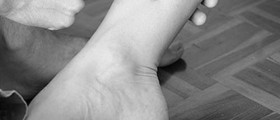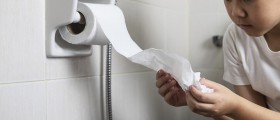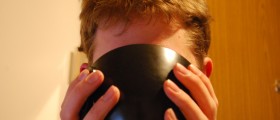
Enuresis means inability to control urination. The general term indicates urination that is not voluntary or done in the waking state and it may occur in various circumstances, due to various factors. The term is, however, mostly used to describe more specific type of enuresis, called nocturnal enuresis, which is known by most people as bed-wetting.
Nocturnal enuresis is commonly seen in children. Most of them grow out of it and the problem never arises again. It can, however, be difficult to stop bed-setting, because this problem is often related to stress, and the very fact that a child is bed-wetting causes even more stress, leading to some sort of a vicious circle.
Infants and toddlers, children who still wear diapers, cannot be considered bed-wetters, simply because they are yet to learn to control their bladder. Older children, who are supposed to have learned to control urination, but still occasionally urinate in bed, can be called bed-wetters.
There are two main types of enuresis or bed-wetting: primary enuresis, in which a child have always wet the bed, and secondary enuresis, where the child was able to stay dry for certain periods, and then started urinating in bed again.
Secondary enuresis and its causes
Secondary nocturnal enuresis is bed-wetting that occurred after a period of at least six months of staying dry during night. About one quarter of all children who bed-wet have this form of enuresis. It is estimated that eight percent of all children will develop secondary nocturnal enuresis by the age of ten.
Since enuresis can affect children who are already at an age when they understand that they are not supposed to urinate in bed, the emotional, psychological and social impact of this problem is clearly significant. These children feel deeply ashamed, inadequate, frustrated, embarrassed and the problem affects their self-esteem, their relationships with other children and with parents, their quality of life and performance at school.
Secondary nocturnal enuresis usually has the causes similar to those of primary enuresis, such as waking up to the sensation of full bladder, too much urine produced at night or bladder that acts small during night.
However, unlike primary enuresis, secondary nocturnal enuresis is often linked to emotional factors. The chance of there being an emotional cause to bed-wetting is higher in children who started bed-wetting at an older age. Psychological stress that leads to enuresis may involve the birth of a new sibling, divorce of the parents, death in the family, problems in school, child abuse, peer pressure and similar.
Overactive bladder is another common cause of secondary nocturnal enuresis, especially in pre-schoolers. Other potential causes include constipation, cystitis and obstructive sleep apnea.








-Causes,-Symptoms,-Diagnosis-And-Treatment_f_280x120.jpg)








Your thoughts on this
Loading...